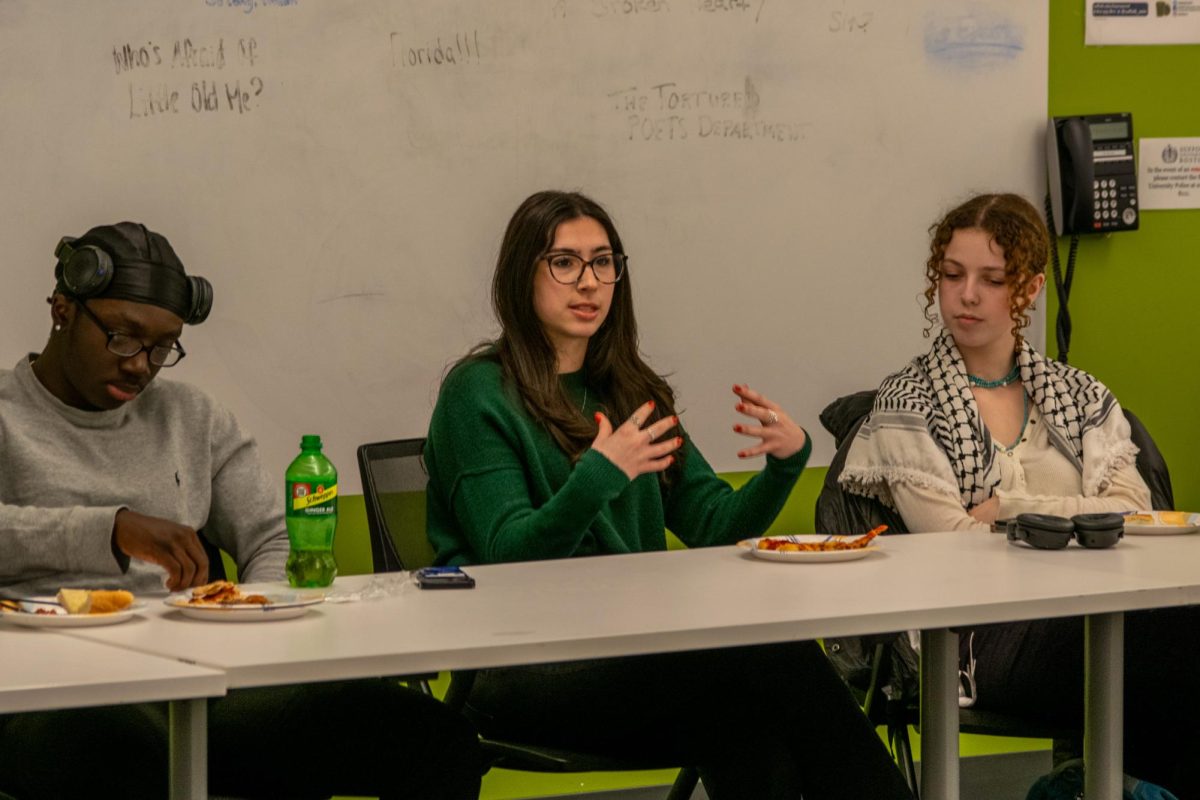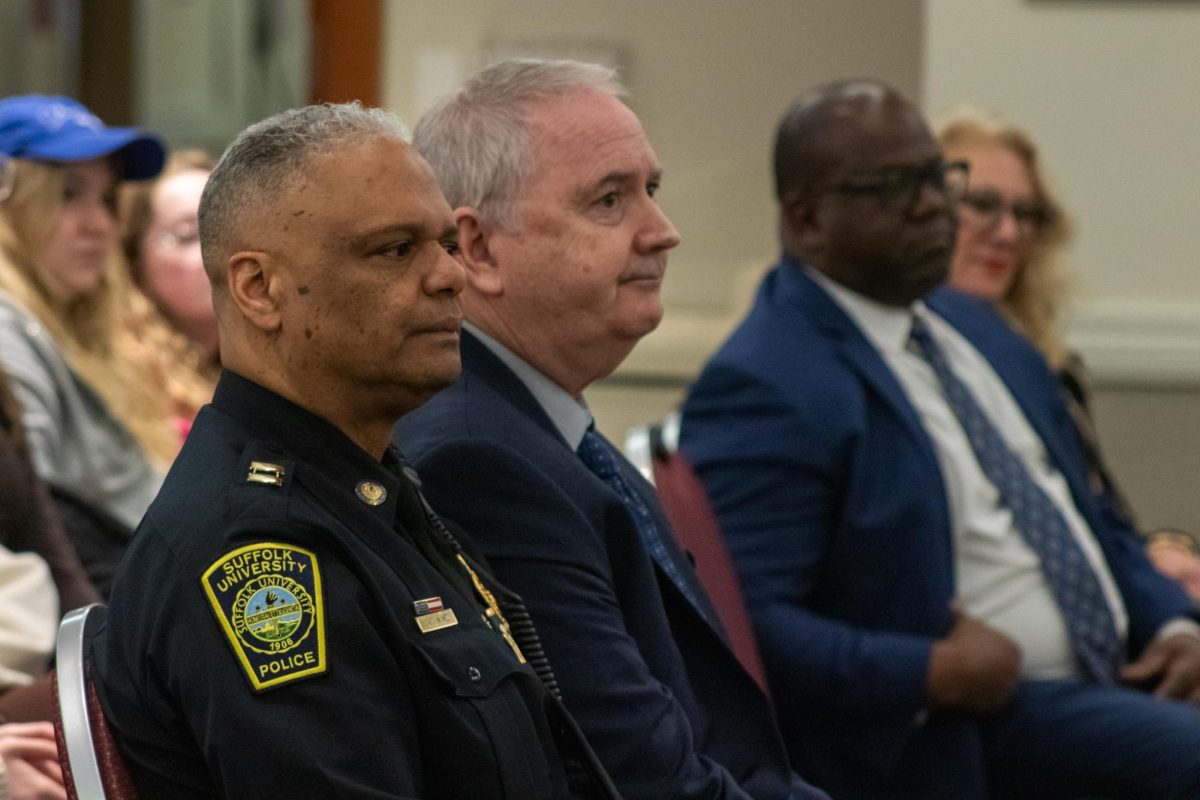In contrast with ubiquitous tension throughout the Middle East and trying foreign policy debates in the current U.S. presidential election, an opportunity was presented at Suffolk for a more light-hearted introduction to the Arab world. The Project Nur branch at Suffolk put on an event, The Culture of Food in the Arab World, which put on both a display of Arabic cuisine and a presentation of foods and their histories for the enthusiastic attendees. Project Nur at Suffolk aims to humanize Arab culture for all of those students who never had the chance to experience it first-hand.
The event gathered a wealth of Suffolk students who not only engaged the speaker, but seemed to enjoy the food without hesitation. Suffolk junior Angie Moussa enjoyed how the event was an “informal and relaxed atmosphere and easy to ask questions.” For other students of Arab background, the food invoked plenty reminiscing thoughts of home.
Iraqi gastronomist and anthor of Iraqi cookbook Delights from the Garden of Eden, Nawal Nasrallah, gave an all-encompassing presentation on foods frequented throughout the Arab world. She began her talk with a quote that characterized the general theme of comparing foods with their histories and their political implications: “If you like the food of a country, you don’t want to have war with it.”
Nasrallah commented on how difficult it is to make sweeping statements about Arab cuisine itself since it includes such a large geographical area incorporating the Arab world. As Savarin commented, “political boundaries do not mean anything for food,” with numerous ethnic, religious, and country borders. She then proceeded to regionalize various foods from areas such as North Africa to northern Iraq. Northern Africa, where Fava beans are frequented, is one of the most telling signs of cuisines rooted in the region. In Iraq, Kubba Mosul, large flat discs of meat, are a daily observance throughout the country. Most of the audience agreed when she stated how no country in the Arab world can lay claims to hummus.
Religion, as she reiterated, affects cuisines very much as well. For the Jewish populations throughout the Arab world, concessions have to be made because of holidays such as the Sabbath. In understanding with their religious beliefs, no work can be done on the Sabbath; therefore they eat foods such as stuffed chickens cooked the day prior, a common cuisine found Jewish populated regions.
A more striking take on cuisine was their use as a status symbol. Meat was stated as highly revered, and that any dishes without it to most Arabs are deemed “counterfeit.” This was consistent with her graceful declarations on Arab hospitality. A few norms include being generous in cooking with meats for guests, and the host being sure not to eat until the guest has been fed until they can’t fit anything else.
Project Nur is a group at Suffolk that works directly through the American-Islamic Conference. Project Nur was founded after September 11 by an Iraqi woman in an attempt to break the media stereotypes of Arab-Muslim cultures throughout the U.S. Suffolk Project Nur Chapter President Dana Muaddi commented on plans she has for the organization on campus, include holding many more events over the next year. “We had a great turnout for this event,” Muaddi commented. The organization has been actively engaging the Suffolk community in an effort to make the Arab and Muslim cultures palpable.












